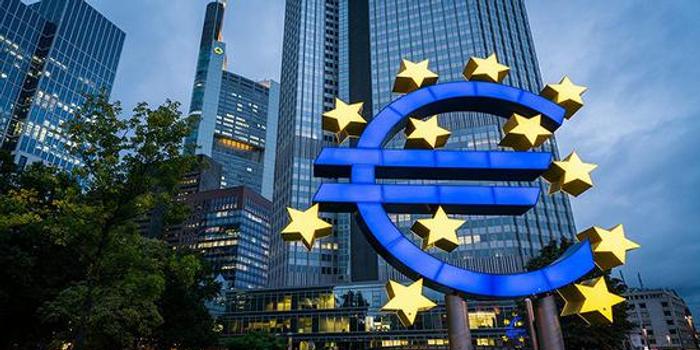
Recently, the Eurozone June Purchasing Managers Index (PMI) data reported by Ansa News Agency has attracted widespread market attention. This key economic indicator decreased from 47.3 points in May to 45.6 points, far below the market's expected 48 points, showing a clear downward trend. At the same time, the Eurozone service industry PMI index was 52.6 points, although slightly lower than the expected value of 53.5 and the previous month's 53.2, it is still in the expansion range. This data comparison reflects the imbalanced challenges faced by the eurozone economy on the road to recovery.
The manufacturing industry is facing a downturn, and the driving force of economic growth is weakening. As the core of the real economy, the rise and fall of the manufacturing industry is directly related to the healthy development of the overall national economy. The decline of the manufacturing PMI index in the Eurozone in June undoubtedly cast a shadow over the economic recovery of the Eurozone. This data indicates that the manufacturing industry in the Eurozone is facing multiple pressures such as raw material shortages, rising production costs, and weak market demand, resulting in a continuous contraction of production activities and insufficient corporate confidence.
From the perspective of industry segmentation, the PMI index of key sectors such as automobiles, machinery, and electronics in the Eurozone manufacturing industry has shown varying degrees of decline, reflecting the fragility of these industries in the global supply chain. Especially in the current context of imbalanced global economic recovery and rising trade protectionism, the challenges faced by the manufacturing industry in the Eurozone are even more severe.
The service industry supports, but it is difficult to conceal the overall economic concerns. Although the Eurozone Service PMI index is still in the expansion range, its growth rate has slowed down and is lower than expected. This indicates that although the service industry has to some extent supported the growth of the eurozone economy, the overall economic growth momentum has significantly weakened.
It is worth noting that the growth of the service industry largely depends on consumer confidence and purchasing power. However, under the current challenges of rising inflation pressure, high unemployment rates, and increased household debt burden in the Eurozone, consumer confidence and purchasing power have been severely affected. Therefore, it remains to be seen whether the growth momentum of the service industry can continue.
The economic recovery is unbalanced, and policy regulation needs to be precise and effective. The imbalance in the recovery process of the Eurozone economy poses great challenges to policymakers. On the one hand, measures need to be taken to support the development of the manufacturing industry, restore corporate confidence, and improve production efficiency; On the other hand, attention should also be paid to the growth momentum of the service industry to ensure that it plays a greater role in economic growth.
To address this challenge, eurozone policymakers need to adopt more precise and effective policy measures. Firstly, the coordination and coordination of fiscal and monetary policies can provide more financial support for the manufacturing industry, reduce financing costs for enterprises, and alleviate operational pressure.
Secondly, in response to the development of the service industry, the business environment can be further optimized, market entry barriers can be lowered, and innovation and entrepreneurship can be encouraged. In addition, the competitiveness and attractiveness of the service industry can be enhanced by improving service quality, expanding service areas, and other means.
Although the service industry in the Eurozone has to some extent supported economic growth, the downward trend in manufacturing cannot be ignored. In order to achieve comprehensive economic recovery and sustainable development, the eurozone needs to make more efforts in policy regulation, industrial upgrading, international cooperation, and other aspects.
Firstly, the eurozone needs to continue to strengthen the precision and effectiveness of policy regulation, ensuring that the coordination and coordination of fiscal and monetary policies can fully play their role. At the same time, we should also closely monitor changes in the global economic situation and adjust policy direction and intensity in a timely manner.
Secondly, the eurozone needs to accelerate the pace of industrial upgrading and promote the development of manufacturing towards high-end, intelligent, and green directions. By introducing advanced technology and management experience, strengthening talent cultivation and technological innovation, we aim to enhance the core competitiveness and sustainable development capability of the manufacturing industry.
Finally, the eurozone needs to strengthen cooperation and exchanges with the international community to jointly address the challenges and risks facing the global economy. By strengthening trade and investment cooperation, promoting global economic governance system reform, and other means, we aim to create a more favorable environment and conditions for the recovery and development of the Eurozone economy.
In summary, the imbalance in the recovery process of the Eurozone economy needs to be highly concerned. Only through precise and effective policy regulation, accelerating the pace of industrial upgrading, and strengthening international cooperation can the Eurozone economy achieve comprehensive recovery and sustainable development.

報告顯示,中國電力投資加速增長,預計2024年電網基建投資將超過5300億元。
近日,市場迎來了一則引人注目的消息:工業巨頭3M公司(MMM.N)在本周五公布了其季度業績報告,隨後股價飆升至近兩年來的
最近,外媒給OpenAI算了筆賬,今年可能要血虧50億美元。
近日,巴黎奧運會和世界鐵人三項協會聯合發布了一項重大決定,宣布因塞納河水質污染問題,原定於近期進行的奧運會鐵人三項首次下
當地時間7月18日,法國巴黎發生了一起令人震驚的持刀襲警事件。
近期,一則重大消息在國際舞臺上引起軒然大波,馬來西亞宣布加入金磚國家。
調查發現,互聯網和智能手機的使用幹擾了韓國近五分之一學生的生活。